Inside the ‘dark kitchens’ catering to Britain’s appetite for takeaways
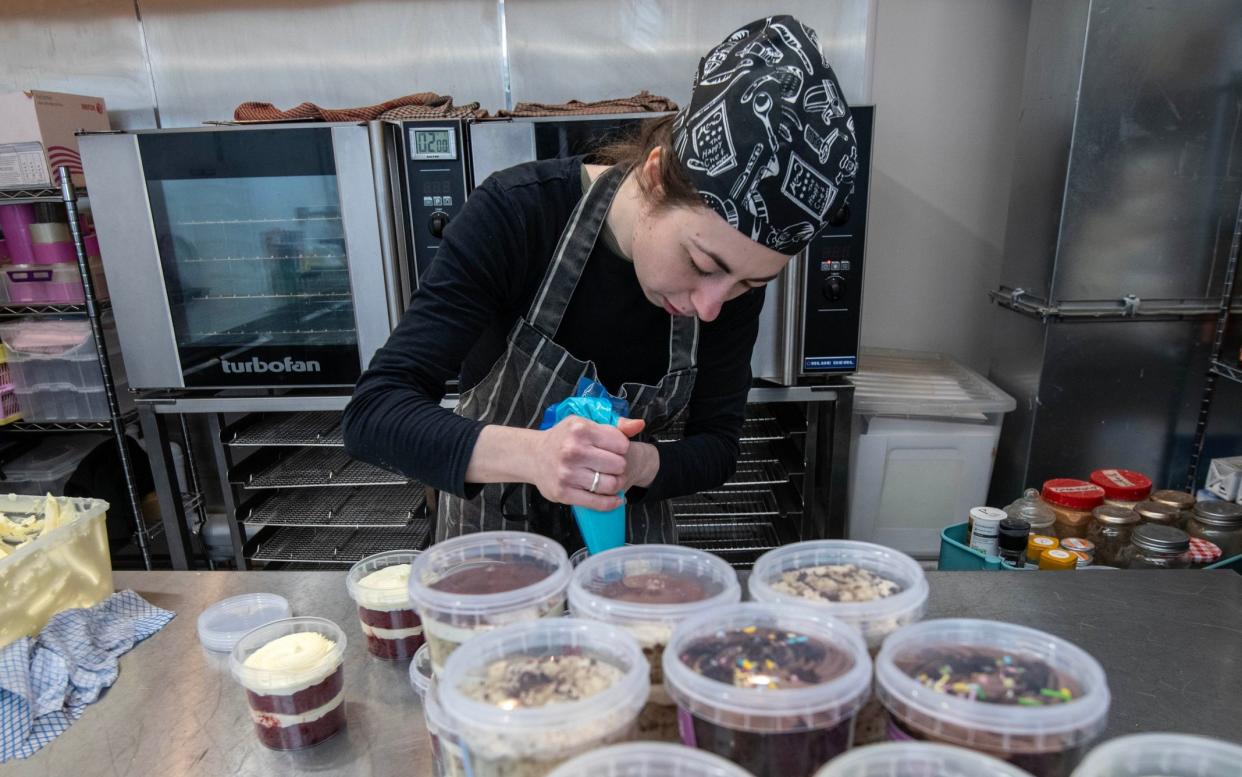
Tucked away in a quiet industrial district in south London, the capital’s appetite is being catered to in a warehouse home to dozens of food brands cooking up their offerings side by side.
A constant stream of delivery riders come and go throughout the day, conveniently out of sight for a public weary of blocked pavements and restaurant goers keen to enjoy an uninterrupted meal out. At least here the riders aren’t asked to stand outside in the rain. In fact, they can even use the toilet.
This is where our insatiable desire for takeaways has led us: to so-called “dark”, or “ghost”, kitchens such as Karma Kitchen in Bermondsey, where food brands rent a space for a fraction of the cost they’d pay on a local high street.
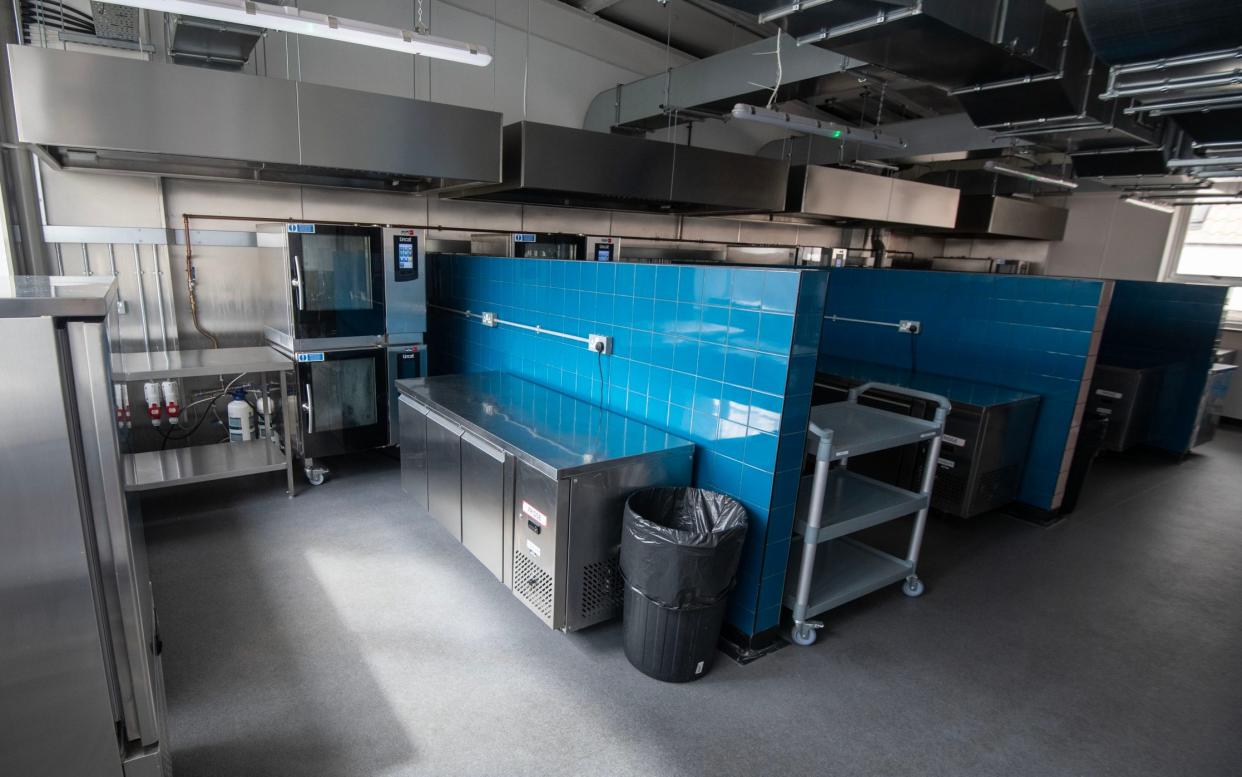
They are named not for their poor lighting (they’re actually very bright and welcoming) but for how they hide the takeaway industry from the British consumer, whose demand for quick and easy food has more than doubled the number of delivery riders in London to 40,000 since 2020.
More than 50 food businesses operate out of Karma Kitchen – the Bermondsey site is one of five the company owns in the capital. In one unit, two chefs are busy preparing food for a number of different brands, wrapping bao buns one minute and frying burgers the next, although most businesses have their own individual kitchen.
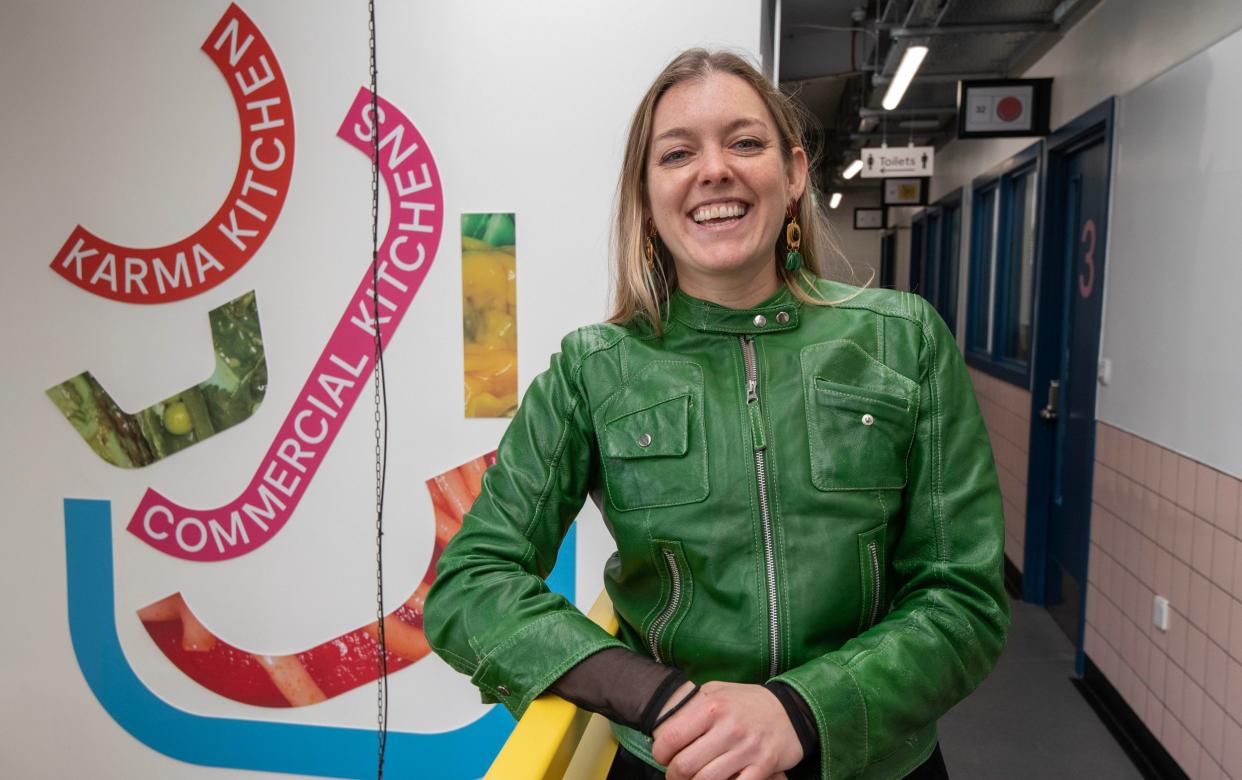
The dark kitchen market is a competitive one, says Eccie Newton, the company’s chief executive: in 2020, it was estimated there were 750 such sites spread throughout the UK.
That’s considerably fewer than in China, which is spearheading the trend with origins in the United States and is now home to an estimated 7,500 dark kitchens, but more are opening all the time.
Karma Kitchen increased its number of kitchens by 300 per cent last year, and competitors are constantly snapping up sites.
The inflection point, experts say, was 2013. That’s when Deliveroo launched in London, followed in 2016 by UberEats. Over the following decade, food delivery apps have transformed Britain into a nation of takeaway addicts – a survey in 2022 found one in five Britons orders a delivery once a month, while 11 per cent get one daily.
In the last five years alone, the online food ordering and delivery platforms industry has grown by 28.8 per cent in the UK – and is now worth some £3.5 billion.
Covid further accelerated our dependency on food delivery, and studies suggest those habits are here to stay. Research by the Institute for Fiscal Studies found that calorie consumption from takeaway food soared by 50 per cent during lockdown, and has remained high ever since – not least because dining out has become prohibitively expensive for many.
For restaurants now expected to cater for sit-in diners and legions of takeaway customers, this presents a problem.
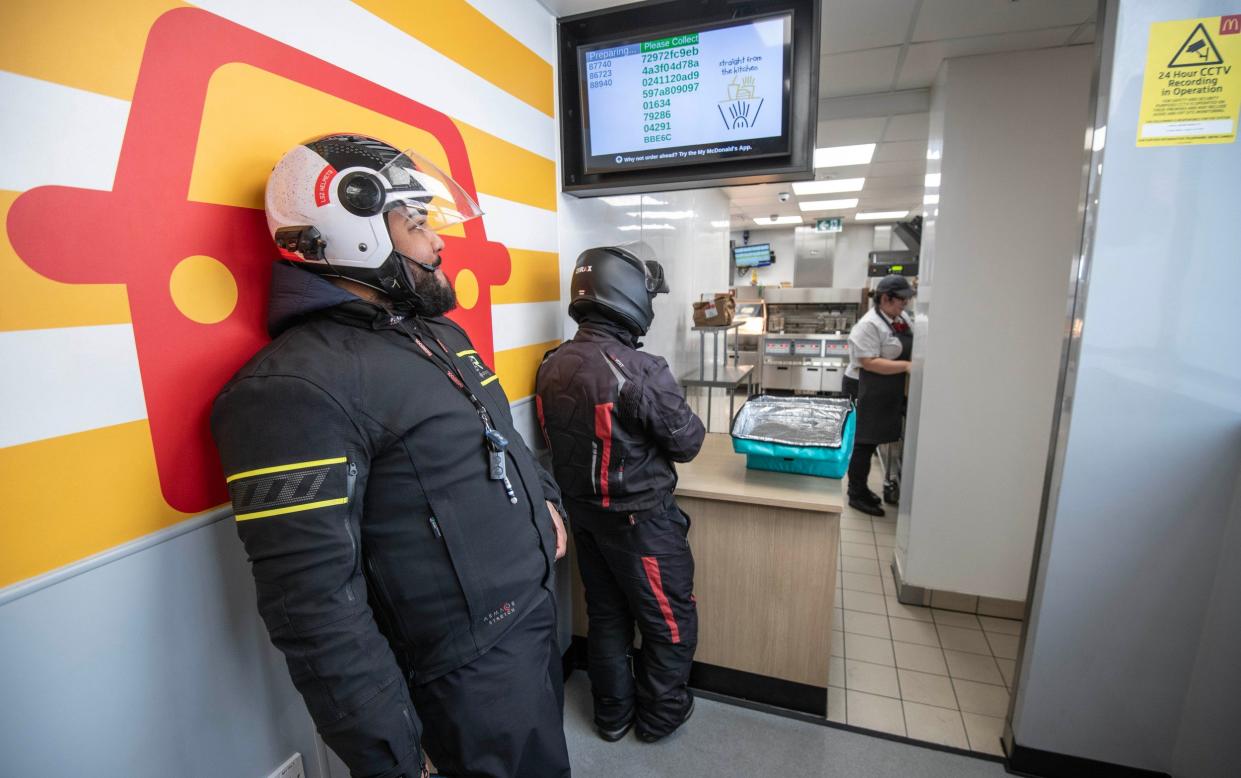
A single restaurant kitchen may be unable to cope with such two-pronged demand. The coming and going of delivery riders can sully the dining experiences for restaurant goers, who may feel as though they are competing with a customer sitting at home in their pyjamas for a chef’s attention.
It’s also a decidedly bad look for restaurants if riders are left queuing outside, especially in the rain.
The British public has had issues too. In Leeds, local councillors were forced to intervene after complaints that delivery riders were cycling too quickly through pedestrianised areas.
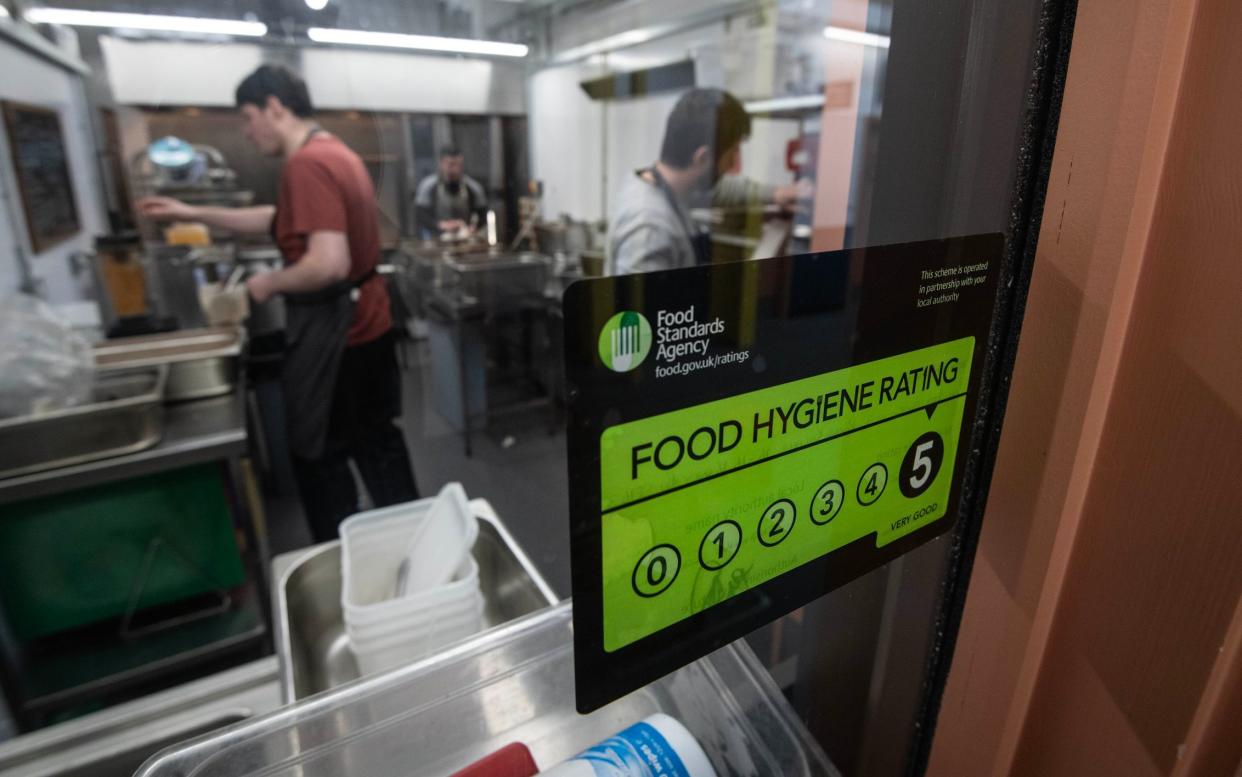
This is where dark kitchens such as the one in Bermondsey come in. Though they predate the pandemic, such facilities have spread in the last three years to service Britain’s eating habits.
Arriving on site, I am expecting a chaotic mêlée of delivery riders, with Wagamama orders being prepared next to Honest Burgers (both brands are known to use dark kitchens, though neither operates here).
The reality is much more mundane: the central hub area is empty, save for a few Karma Kitchen employees, and the kitchens themselves appear siloed off from one another. An upper walkway provides access to another row of kitchens. It looks rather like a high-end prison, albeit one flooded with natural light and decked out with colourful decor.
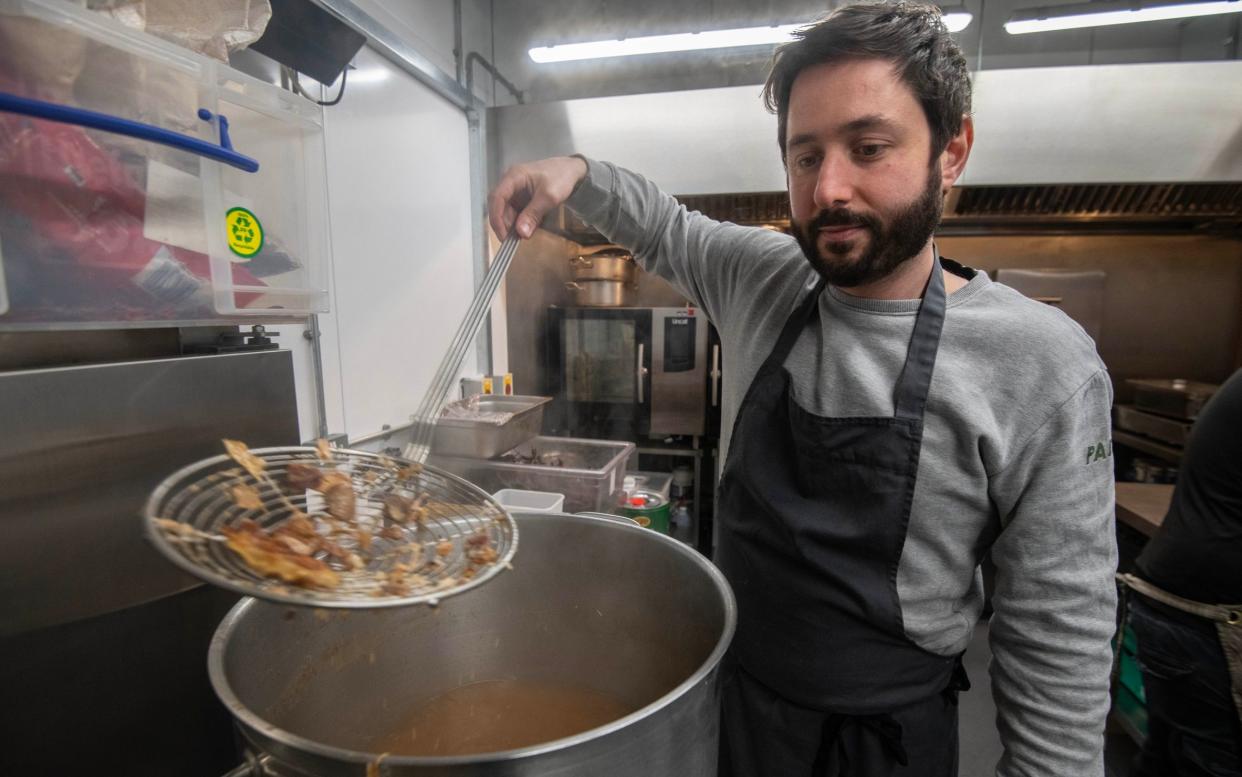
Many of the brands here are large catering companies, although others, such as Tacos Padre, are preparing vats of slow-cooked food to be sold at London’s Borough Market. In their rented kitchen, I’m shown 90-litre vats of boiling chicken juice, a walk-in fridge of meat, and half a dozen trays of stewing beef.
A tour of the kitchen brings a new smell every few feet, from tacos to bao buns and sushi.
The only fast food chain operating out of this building is McDonald’s, which has commandeered a separate wing of the warehouse. It is here that you see a familiar string of Just Eat, Deliveroo and UberEats riders queuing up. One remarks that he can make up to 10 stops a day here.
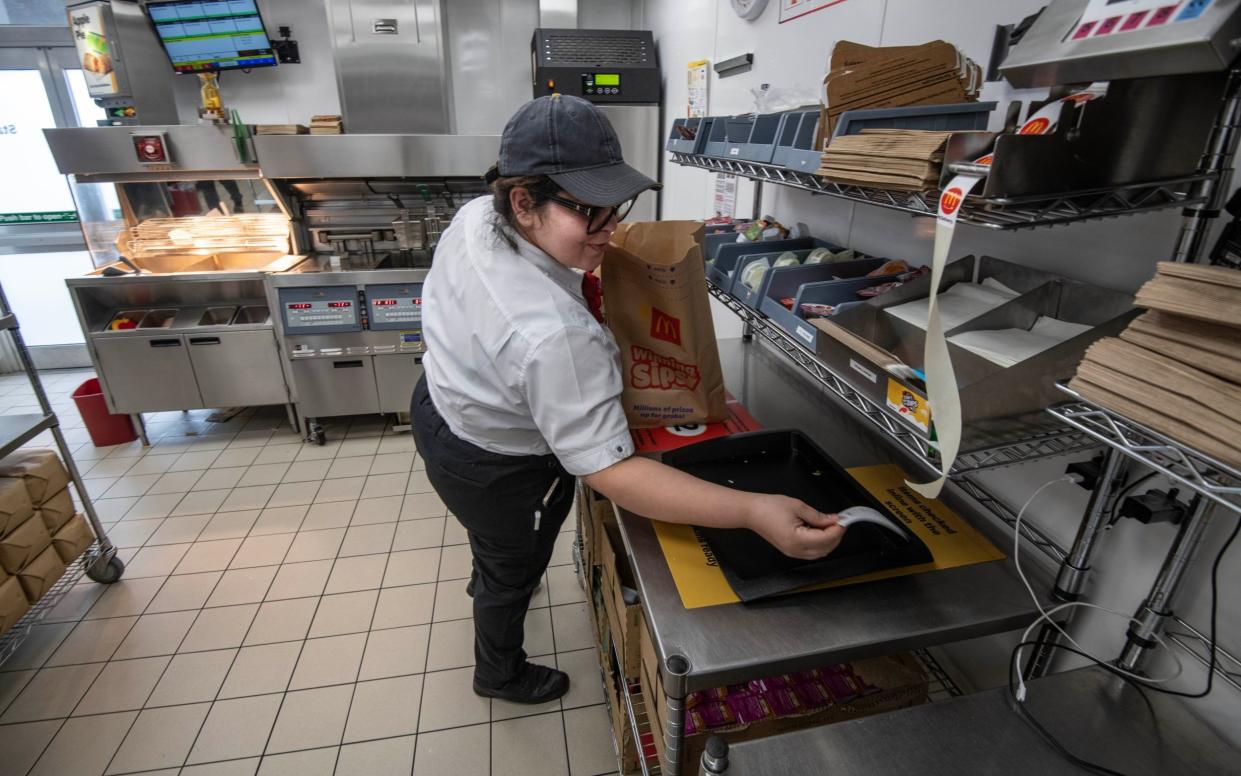
McDonald’s already has a restaurant nearby on Old Kent Road, but the dark kitchen alleviates the pressure on staff there to prepare food for both in-person customers and a fleet of riders. The riders seem cheerful, but I get the sense their expectations about working conditions may be subterranean when Eccie Newton points out that a major selling point of dark kitchens is that riders can use the toilet.
“Riders get bad press in planning applications and residents complain if there are too many of them,” she explains.
“They need to work in a safe environment – they need to be invited in,” she continues. “It’s a bit unfair to make riders stand outside in the rain for hours. Some poor person is being made to hang out in the elements on the high street or being ordered to move along because they’re blocking a door.”
Irrespective of restaurant goers’ supposed irritation with delivery riders, Newton is frank that they are here to stay, and that restaurants will need to accommodate more and more of them as the delivery industry grows.
“It’s a big part of the economy and it’s what consumers want,” she says. “We need to build the best infrastructure to support that.”
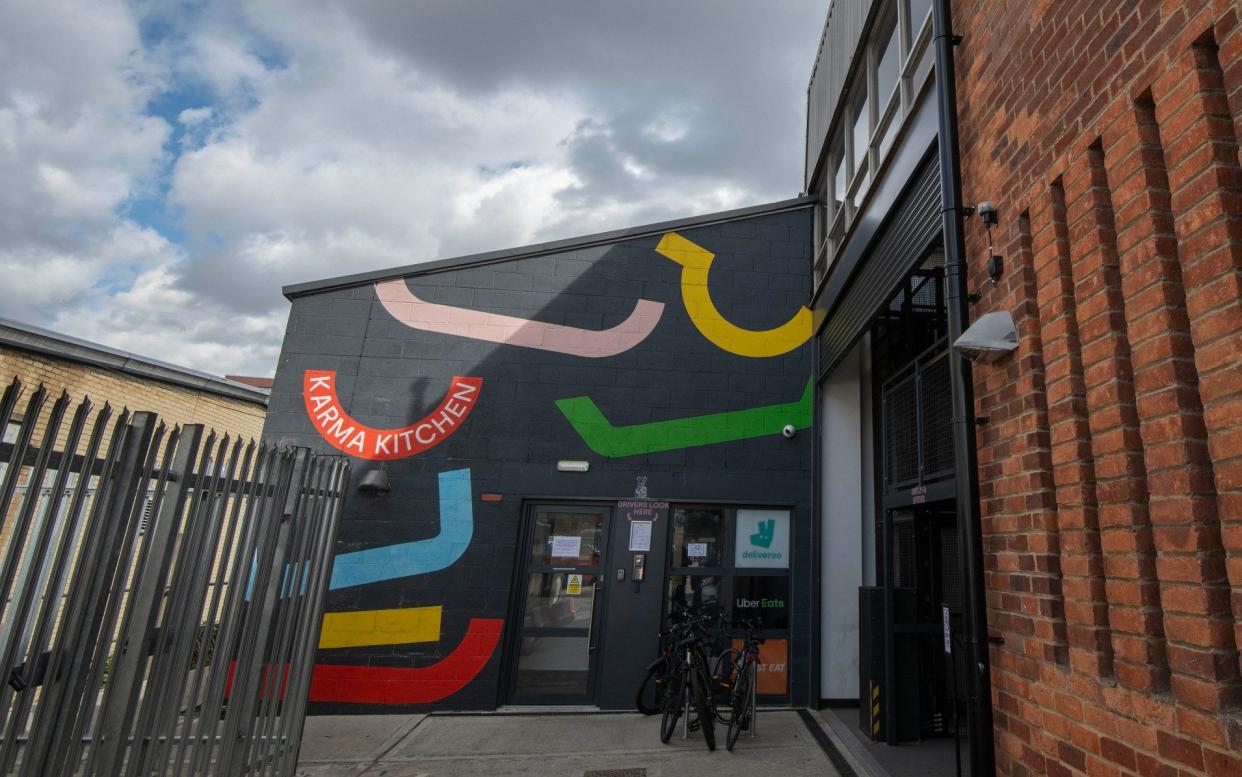
Kate Nicholls, the chief executive of UKHospitality, says other restaurants have experimented with having two entrances to minimise crossover between diners and riders. “Dedicated kitchens that cater solely for delivery are increasing in number but the prospect remains logistically and financially challenging for the majority, with the sector facing so many rising costs,” she says.
“It’s not easy for a business to find, let alone afford, another property to house a commercial kitchen solely for delivery.”
For smaller brands and business-to-business caterers, the decision to rent a space in a dark kitchen is a straightforwardly economical one. Rates for smaller kitchens start at £2,600, and rise to £3,600 for larger ones. In London, high-street rents continue to soar – a crisis deepened by the Government’s withdrawal of energy bill support and refusal to slash VAT rates to ease the burden.
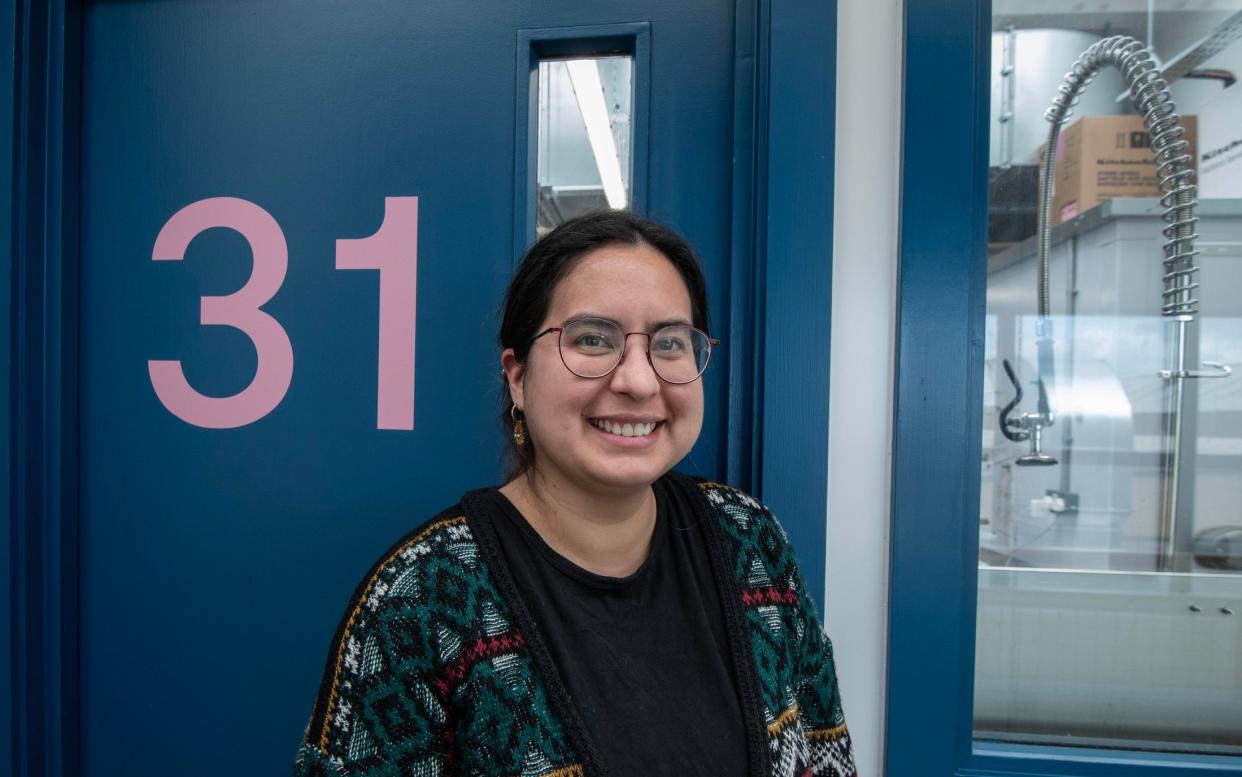
It was for this reason that Daniela Ortega, who runs the handmade cake shop Vida Bakery, moved here last week, shutting shops in Brick Lane and King’s Cross. “People’s habits changed post Covid,” she says. “They would come to the shop and demand custom orders right then and there – they had an Amazon mentality.”
Ms Ortega had been running the business for seven years, but the cost of maintaining an in-person shop ultimately became unviable. Now, she prepares her cakes here for online delivery, which is now the only way to buy them.
“Our shop was beautiful and people loved it, but it’s not sustainable to have prime locations,” she says. The premises were soon snapped up by a coffee chain and a vintage clothing shop respectively.
“They were the only brands able to pay £10,000 a month,” she shrugs.
Ms Ortega’s comments suggest that dark kitchens may well be a symptom of, rather than a solution to, a wider problem with restaurant culture.
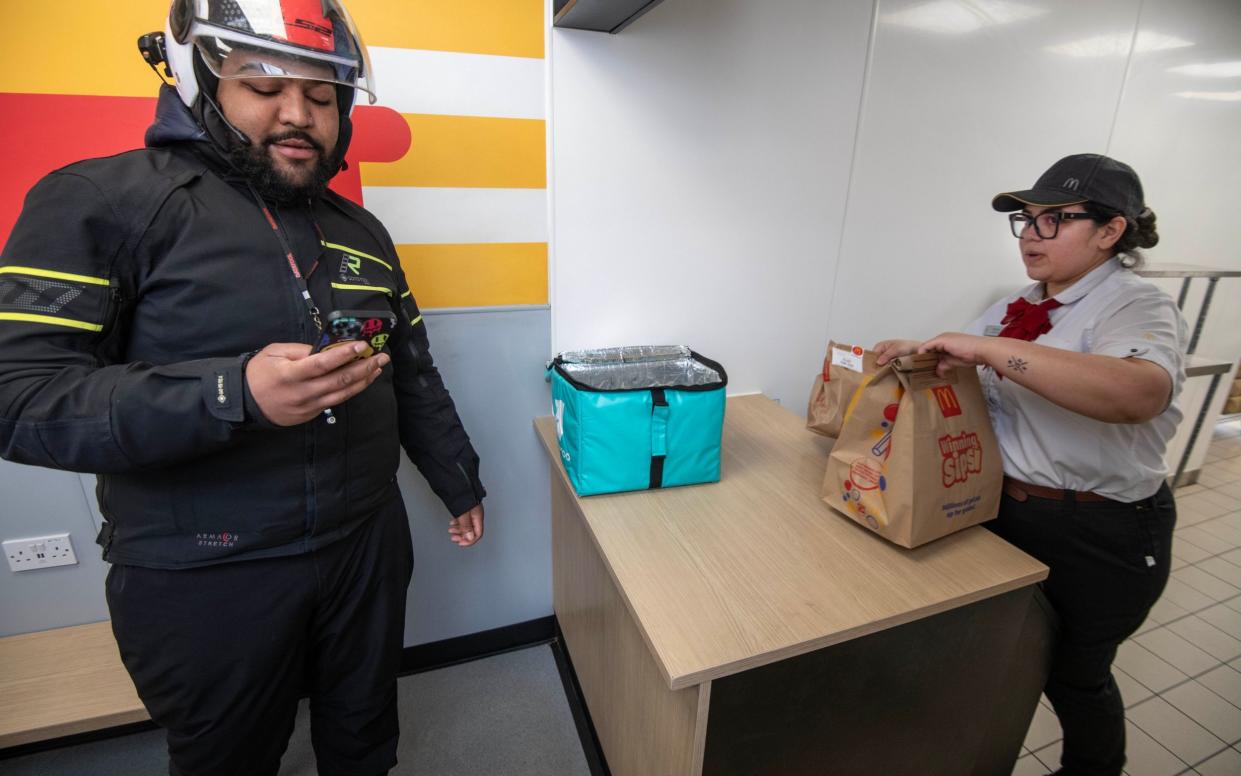
But what is clear is that dark kitchens aren’t just a choice of last resort for restaurants desperate to outsource their delivery operations, or businesses struggling to cope with the commercial costs of the capital.
They’re also home to an array of emerging food brands intent on capitalising on the way we now eat.
“This is the sort of place food brands are getting their start now, rather than market stalls,” Newton says of Karma Kitchen, where half a dozen start-ups are busy at work.
“Think about it: food markets are brutal outside. If it rains, customers don’t come. Now, brands will have to build up a customer base through catering or deliveries first.”


